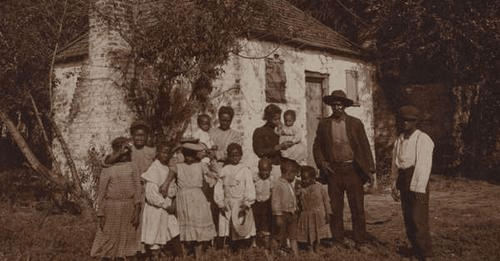For many people, American slavery seems like a historically distant era. After all, President Abraham Lincoln issued the Emancipation Proclamation back in 1863. And Juneteenth has been celebrated since June 19, 1866, a year after federal troops announced in Galveston, Texas, that the state’s more than 250,000 enslaved people were free. But those events are more than 150 years in the past. The images of Black Americans who survived enslavement live now as the faces of long-dead people staring out from old tintype photos.

Of course, the legacy of slavery still affects American society today, forcing Black Americans to deal with structural inequalities that can result in higher rates of poverty, institutional racism, police violence, and poor health, among other problems. Meanwhile, some Americans only need to trace their families a few generations back to find enslaved people among their ancestors.
What’s more, those images of freed slaves in tattered old clothing aren’t that far removed from us. Some formerly enslaved Americans survived well into the 20th century, including a small group of people who were born in Africa and taken to the United States in the final days of the transatlantic slave trade. Their stories are all powerful examples of endurance — and even prosperity — not just in the face of slavery, but of war, economic depression, and widespread racism.
via Grunge
via MSN,com